Cue Card: reliving a rollercoaster chasing career like no other
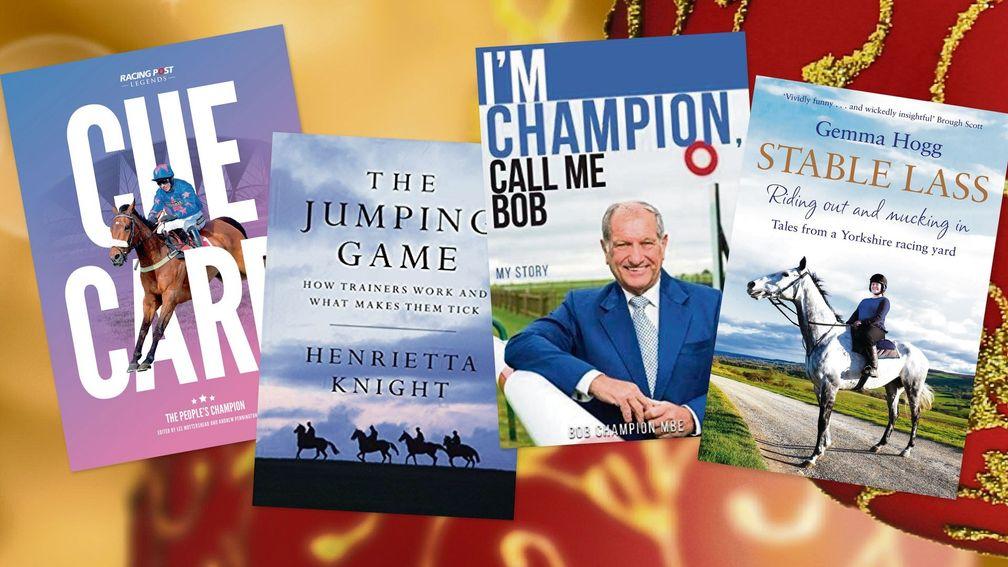
Cue Card: The People’s Champion (edited by Lee Mottershead and Andrew Pennington)
£20, published by Racing Post
Do you remember when US Open winner John Daly retired, then unretired 48 hours later? Or when Owl City nabbed the number one spot with Fireflies? Probably not, as they didn’t exactly hit the front page, but also because they happened way back in January 2010.
Unbelievably, that is also when a hitherto unknown horse called Cue Card made his debut – on January 25 to be precise. He may not have made headlines that day, but he was no one-hit wonder either.
Ask ten jumps fans why they love the sport, and chances are at least nine will say because the horses come back year after year, season after season – old friends returning from their secretive summer breaks, their brief anonymity as just another bay horse in a field of many brought to an end by jockeys climbing aboard bedecked in brilliant silks.
Yet longevity alone does not earn affection. True jumps heroes, the rock stars with their diehard fans, must also offer brilliance, character, relatable connections, and often a touch of vulnerability. Cue Card brought it all, and what a gift it was.
This worthy tribute to the recently retired Crackle (an adorable stable name if ever there was one) relives every moment of his long and brilliant career, race reports and features of the time – not quite written by quill but old enough – expertly woven together by heartfelt words from Lee Mottershead, co-editor of the book alongside Andrew Pennington.
As is fitting, Mottershead quotes owner Jean Bishop extensively throughout, and while her love for Cue Card and delight at the years of sporting joy he brought is evident, more so is the adoration for her late husband Bob, former Crystal Palace vice-chairman and long-time supporter of trainer Colin Tizzard.
For both the Bishop family and Tizzard, Cue Card was the horse of a lifetime. The title is one oft-bestowed on racehorses – because everybody has one, in some form or another – but for the trainer, Cue Card was truly life-changing, transforming him from a dairy farmer who trained horses to one of the country’s leading trainers who also had a few cows.
Stablemates Thistlecrack and Native River also make cameos in this equine This Is Your Life, a life in which the careers of many a rival both began and ended, stirring memories of yet more much-loved performers – Sprinter Sacre, Bobs Worth, Menorah, Albertas Run, akin to the final episode in a long-running sitcom, bringing back old characters to mark the end of an era. But make no mistake, this book is here to celebrate one thing: Cue Card.
As Mottershead writes, it was – is – impossible not to love Cue Card. His early flashes of brilliance promised much, and brilliant he was, yet not infallible. When the time came to retire him it was easy to look back on a stellar career and reel off the wins – three Betfair Chases, two Ascot Chases, a brace of Cheltenham Festival wins and that long-awaited King George victory.
It was also easy to overlook the downs (not failures) in Cue Card’s career while celebrating the ups, but this book does not gloss over them. Rather the opposite. In reliving every moment of those eight years, readers experience the heartache all over again.
The missed festivals, the King George seconds, and of course, that cursed third-last fence at Cheltenham. What might have been still pains his fans, not least jockey Paddy Brennan, whose career he reignited.
A great horse can be many things to different people. Cue Card was the best horse the Bishops ever owned. He sent Tizzard’s training career stratospheric. He revived the career of the trainer’s son Joe, partner in his earlier victories. His tilt at the £1 million Triple Crown bonus lifted racing out of its bubble and into the real world, even if just for a little while.
And for the fans who took Cue Card to their hearts, he became the heart of the jumps. Returning year after year, joyfully galloping with his head held disconcertingly high, ears pricked, he epitomised why we love the sport. And the sport loved him.
In the words of Lee Mottershead, it was all rather wonderful.
Katherine Fidler
Beguiling memoir merits retelling – and re-reading
I'm Champion, Call Me Bob by Bob Champion
£19.99, published by FCM Publishing, available through Racing Post
On the one hand, the central premise of this book is so familiar that one might wonder whether further repetition is required. On the other hand, the central premise of this book is one of the greatest racing stories ever told, and every re-reading is as beguiling as the last.
This is an updated version of the autobiography written by Bob Champion after his Grand National victory on Aldaniti in 1981, when the story was 'only' his gruelling recovery from cancer and his Aintree heroics. Champion has moved on apace and he takes the reader through the ups and downs of his post-National life in typically jaunty, irreverent fashion. Unlike many 'autobiographies', this doesn't bear the obvious imprint of a ghostwriter, the voice being authentically Champion's and all the better for it.
It's chronological, as ever; we start with the young Champion making his way in the world and the weighing room, with plenty of madcap detail about slow horses, fast thinking, 10,000 hours of sweating and amusing anecdotes about the titans of the weighing room in that glorious age of the cavaliers.
The thrills and spills are conveyed very well, but in contrast the book's closing chapters are rather chaotic, slightly disconnected, mired in the minutiae of Champion's favourite television programmes and his participation in another TV programme, which might have been more deftly, more concisely accomplished. It doesn't matter so much, though, because the main thrust of the book makes up for any shortcomings elsewhere.
Champion pulls no punches in the account of his diagnosis of and treatment for cancer, managing to make the description of his chemotherapy almost as painful to read as it must have been to endure. The stench of chemo platinum infuses the very pages. He shifts between desperation and optimism, his slow recovery matching that of his beleaguered horse Aldaniti, until the strands of the narrative weave themselves into the most uplifting denouement possible. For anyone new to the tale, this section of the book will be unputdownable. For those who know what is coming, the journey is still nothing short of miraculous.
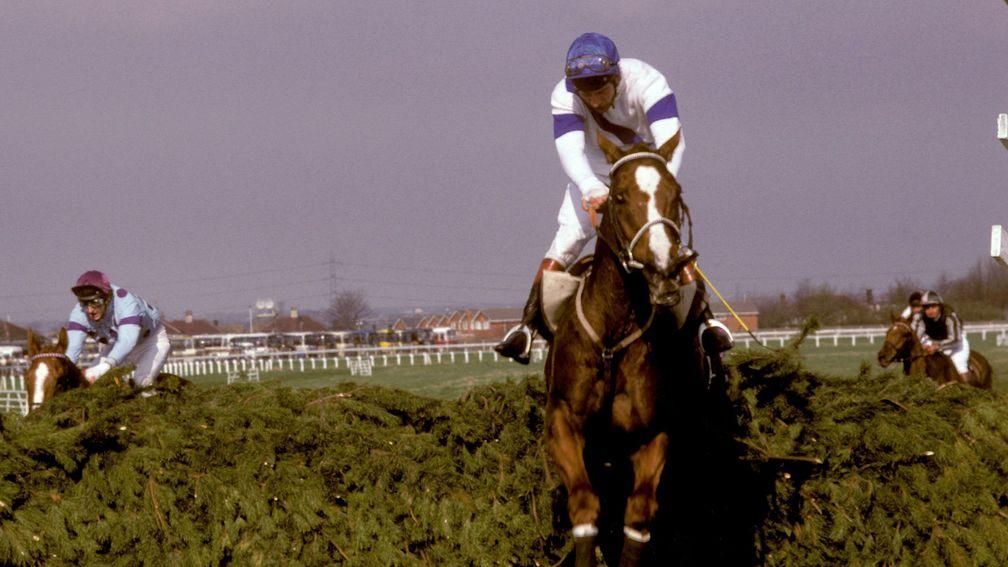
And then he only goes and wins the bloody Grand National. Champion's post-race comments merit endless repetition – "My only wish is that my winning shows [patients in hospital] that there is always hope, and that all battles can be won" – and the rest of the book is suffused with the enthusiasm of a man who won his battle and is endlessly grateful for it, and who cheerfully does his bit to help others in the same position.
In between the film premieres, the charity rides, the gigs on cruise ships and his irrational hatred of tractors, the story is interspersed with contributions from friends and family, a useful device that breaks up the pages and illuminates Champion's character from a different angle. The accompanying black-and-white photographs are generally disappointing, but there is a good reason for that – the original selection was lost in a fire – and the words, especially in the middle section, carry sufficient heft to be more than compensatory.
Steve Dennis
Painful tale of how 'easy money' turned into a grim gambling addiction
Tony 10: The Astonishing Story of the Postman Who Gambled €10,000,000 and Lost It All by Declan Lynch & Tony O'Reilly
€16.99, £14.99 published by Gill Books
This is a horror story. As with the most compelling tales that get under your skin and make your flesh creep it is all too easy to envisage yourself in the role of Tony O'Reilly, an ordinary man who lost control of his betting and entered a terrifying downward spiral that cost him his family and his job and put him in jail.
The figures involved are chilling: €10.5 million staked in his Paddy Power account alone, and just over €9.1m won, so an overall loss of €1.4m, which is the ratio you would expect. Unfortunately, we are not talking about a billionaire rolling the dice with his spare change but a postal worker who stole €1.75m from his employer to feed his habit.
As O'Reilly recounts his story through journalist and author Declan Lynch it is the randomness of the hand of fate that is most chilling, not in denying him punting success but in drip-feeding enough winners to encourage him to go in one more time to clear all his debts and more.
If only he hadn't decided to follow a friend into a betting shop in his hometown of Carlow for the first time at the age of 24 in 1998, choosing to back Patrick Kluivert to score first for Holland against Argentina in their World Cup quarter-final that day "just to have an interest" and based merely on the memory of how the striker had destroyed Ireland's European Championship hopes three years earlier; combining that with Holland to win 2-1, because that was the bet his mate was having.
The stake was €1, the odds 45-1. In Marseille the result was 2-1 to Holland; the result in Carlow was instant joy and a life-changing moment that would bring misery.
As he went to sleep that night, happy in the knowledge he had won half a week's wages at the stroke of a pen on a football coupon, O'Reilly's overriding thought was how easy it had been.
At first he continues cautiously, bets irregularly and in small stakes, but the 'gift' of a €50 betting voucher means he opens an online account and the stakes and frequency rise. Still, placing €100 on Rafa Benitez to become Liverpool manager is a big bet for him at the time and is nervously thought through. It would soon seem paltry as successful betting brings invincibility, a feeling of self-belief to someone who doubts himself.
Redemption, when it comes, is in being caught and no longer having to hide his addiction. Now he is helping others overcome their gambling problems and for anyone who thinks that might apply to them there is no better place to start than in reading this salutary tale.
John Cobb
Invaluable insight into top yards with a master of her craft as your companion
The Jumping Game: How National Hunt Trainers Work and What Makes Them Tick by Henrietta Knight
£20, published by Head of Zeus – available through Racing Post
The arrival of this book brought with it a keen sense of anticipation that already elevated it above the norm. It is one of those books you want to open straight away and it was reassuring to find the anticipation was shared by none other than John Francome, a friend of Knight but more to the point a champion jockey who saw first-hand some of the greats at work, most notably Fred Winter at the Uplands yard now occupied by Warren Greatrex.
"What a wonderful book," are the first words of Francome’s foreword, and he goes on: "I have been waiting a long time for someone to write about the many different ways there are to train a racehorse to peak fitness and there is no one better qualified to do it than Henrietta Knight."
Knight was not only a great practitioner of the art of training jumps horses, winning three Cheltenham Gold Cups with Best Mate as well as a Champion Chase with Edredon Bleu among other big-race triumphs, but she has always been a great student too, willing to learn and have her views shaped by others but with the strong will not to be taken in directions she did not want to go.
As such, she is the perfect guide as she takes us on a journey around the top jumps yards in Britain and Ireland to probe the set-ups and methods that now set the standards at the highest level.
Achievement earns respect and for this book access has followed for Knight, with 27 trainers opening their doors to her. The trainers she visits accounted for 23 of the 28 winners at this year’s Cheltenham Festival.
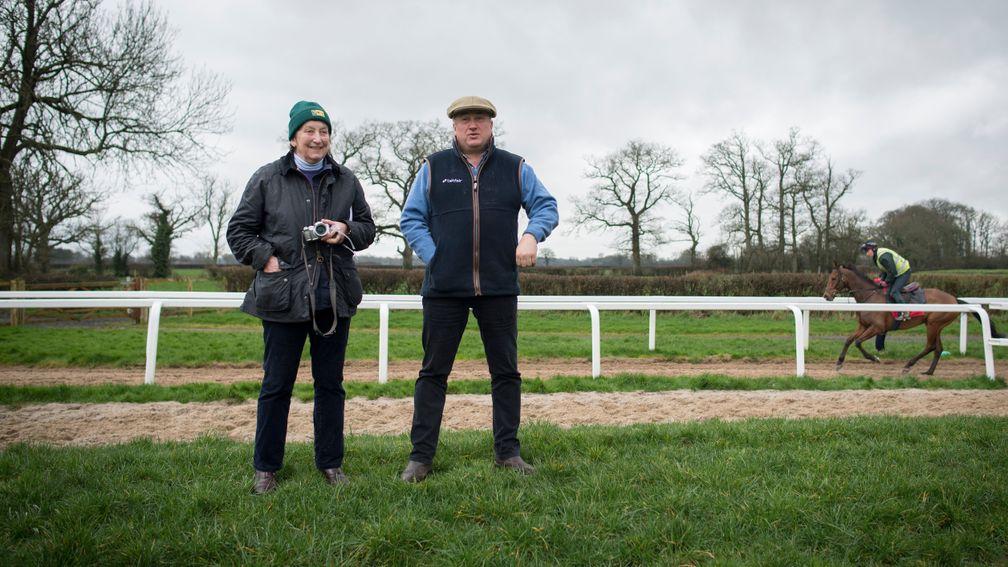
Admittedly, there are racing followers who could not give two hoots about what makes one trainer better, or at least different, than another – it is enough for them to know simply that they are – and this book is probably not for them.
But some sports fans reach a point where they want to know more about the work that makes Pep Guardiola’s Manchester City team so dominant or takes Ireland’s rugby players to the grand slam under their coach Joe Schmidt, or indeed Colin Tizzard to Gold Cup victory with Native River.
To stand on the training pitches for a day with Guardiola or Schmidt would be eye-opening, and here Knight does the same on the gallops of the top trainers. She concludes that Tizzard, for instance, "has a refreshingly simple way of training horses", having used her chapter on Venn Farm Stables to consider the virtues – or not – of turning out horses in training (Tizzard, on the whole, doesn't) and how best to use sand circuits in the training regime.
If that sounds heavy, it isn't – partly because it is leavened with the personality and background of each trainer and also because Knight is never backward at coming forward with her own opinion on certain methods of training or stable management. She is not a passive reporter, more a passionate commentator who comes across as both open- and fair-minded, never critical or judgemental.
It is interesting, too, to hear the voice of her late husband Terry Biddlecombe on a regular basis, as Knight relays advice he gave her or ideas they developed together.
Knight seems naturally disposed towards the medium-sized trainer, not surprisingly given her own background, and at one point she poses the question: "But does a superstar have to come from a big stable?" She inserts the italics herself for emphasis, as if to say 'no'.
Essentially, though, this is a study of success, even if it is achieved and measured in different ways. For Knight, too, it is another fine achievement.
Nick Pulford
Poignant and compelling: an equine Bridget Jones
Stable Lass: Riding Out and Mucking In – Tales from a Yorkshire Racing Yard by Gemma Hogg
£16.99, published by Pan Macmillan – available through Racing Post
If Stable Lass was required reading for all equine college students, the staffing crisis would probably be over. A poignant, compelling, hilarious, emotional (and at times X-rated) account of life as a Yorkshire stable lass, this book pulls no punches about how difficult life in a racing yard can be – sometimes almost unbearably so for myriad reasons.
Yet if you can survive the lows, the soaring highs are more than just reward, as Gemma Hogg so beautifully portrays when recounting her life from pony-mad teenager to winning jockey and assistant trainer to Micky Hammond, in which role she was named Employee of the Year at the prestigious Godolphin Stud and Stable Staff Awards in 2016.
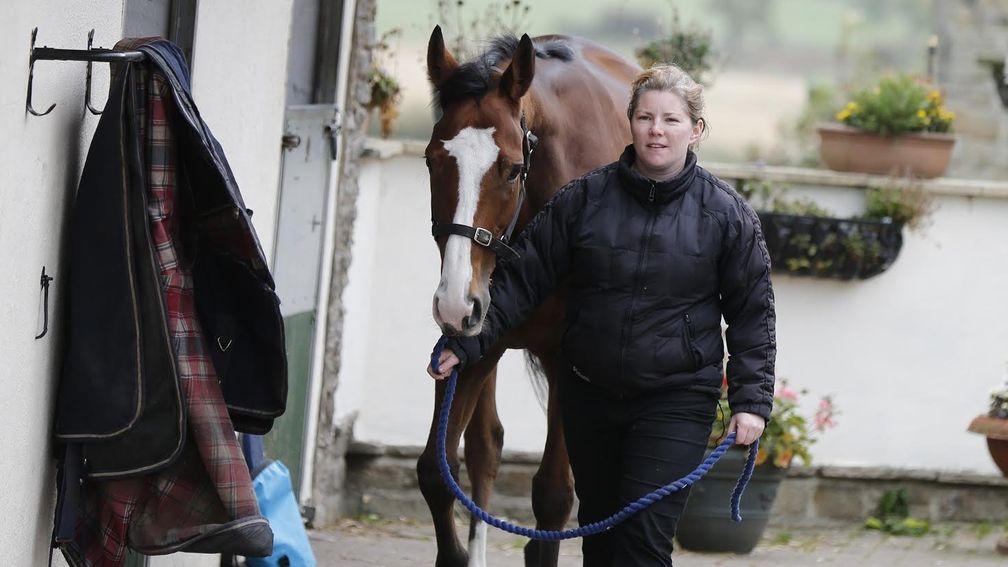
Do not be tricked into thinking this is a book only 'horsey' types will enjoy. True, the first few chapters weaving in Hogg's early life are fairly pony-heavy – but such is her easy and convivial manner on the page that those who prefer to keep a safe distance from large hairy animals will still revel in candid assessments of her formative years. For Hogg's kindred spirits, it is reminiscent of an equine-themed Bridget Jones's Diary – endearing, funny and often all too relatable.
The book winds its way back and forth through racing past and present, like a river through the dales, bringing life behind the scenes front and centre. Ably assisted by a cast of colourful characters, Hogg brings favourites from before her time to the fold – older racing fans will be as delighted at the cameo of Ubedizzy as newer fans are horrified, the tale of the spectator-savaging and finger-eating racehorse one not for the faint-hearted, while One Man, Richard Dunwoody and Adrian Maguire are among other familiar faces.
Refreshingly, elements of local history are expertly woven in – Hogg, although wholly dedicated professionally, hasn't forgotten life exists beyond the sport – while at the more shocking end of the spectrum, accounts of certain nocturnal activities not confined to the night (or the bedroom) may shock both in substance and frequency.
However, while sex sells, this book never forgets that horses are the foundation of racing, that life in a racing yard is built around the relationships between humans and these most awe-inspiring of creatures. It is this bond, this kinship, that is as difficult to break as it is to describe.
In the latter Hogg excels in a way achieved by few, not just defining the feeling between horse and groom, but slowly drawing in the reader until they, too, are emotionally invested. Anyone who fails to be moved by Hogg's parting with her first charge has a heart of stone. I cried.
Above all, Stable Lass provides a no-holds-barred and sagacious insight into the side of racing few are lucky enough – or unlucky enough, depending on your point of view – to experience. Not just the mundane day-to-day tasks that keep the wheels of racing turning, but the human aspect, good and bad.
From hazing and being bullied to first winners and fabulous gossip, the like of which certain racing celebrities may never hear the end of, Hogg does not just tell readers about her world, she actively welcomes them into it. Just what you'd expect from a Yorkshire lass.
Katherine Fidler
Twilight world of gambling and gangsters
Monsieur X – The Incredible Story of the Most Audacious Gambler in History by Jamie Reid
£18.99 (hardback), published by Bloomsbury Sport – available through Racing Post
Jamie Reid attained what many people will regard as the benchmark for true-life stories of skulduggery on the turf in Doped, which followed Seabiscuit as only the second racing book to win the William Hill Sports Book of the Year award in 2013.
Reid’s depiction of Micheline Lugeon, the Swiss-born au pair who became the mistress of the book’s central character, Bill Roper, is especially striking. In his latest work, Monsieur X, Reid introduces us to a whole cast of European sophisticates in the mould of Lugeon, as well as taking us on a tour of some of French racing’s most important off-course addresses.
Enter Patrice des Moutis, a well-bred and better-educated follower of the turf who, when we first meet him, is the confident and unofficial bookmaker for some of the biggest names in French racing.
In the opening chapters we are introduced to legendary owners such as Marcel Boussac and Prince Aly Khan (along with his wife Rita Hayworth), trainers Alec Head and Georges Pelat as well as two of the most colourful women to have their colours carried to Classic success, Etti Plesch and Suzy Volterra.
Des Moutis suffers the misfortune of being banned from the racecourse early on in the piece, something I imagine Reid regrets almost as much as his hero, given his ability to evoke the atmosphere of Longchamp on the opening Sunday of the season.
But we are more than compensated by descriptions of institutions like Deauville’s Normandy Hotel or Le Grand Cercle, a discreet and exclusive Parisian gambling den just off the Avenue des Champs Elysees run by the Corsican mafia.
With his fixed-odds business gradually waning, des Moutis temporarily suspends his disdain for the bureaucratic pari-mutuel system and instead embraces the new Tiercé bet, the advent of which propelled racing to the top of French sporting passions during the era thanks to its coverage on television and radio by such celebrated journalists as Guy Lux and Leon Zitrone.
Des Moutis embarks on a war of wits with PMU president Andre Carrus – arguably the other principal character in the piece – as he stages more elaborate and well-conceived coups in down-at-heel tabacs of the capital.
All this is accompanied by sumptuously observed details of bourgeois society, with its month-long holidays in Deauville and its clandestine extra-marital assignations.
Reid is particularly strong on the social and political mood music, with the collapse of the Fourth Republic and French pride in south-east Asia, the rise of France’s strongman Charles de Gaulle and the waves of terror across France and it’s soon-to-be ex-colony Algeria as the civil war there rages.
From the high-society celebrations of his extraordinary winning streak in the 1960s, life begins to turn decidedly more dark for des Moutis, allowing the author to drag us into a demi-monde of race-fixing, Marseille gangsters and murder. Monsieur X is a story that deserves to be told and, in the hands of Reid, has a chronicler more than equal to the task.
Scott Burton
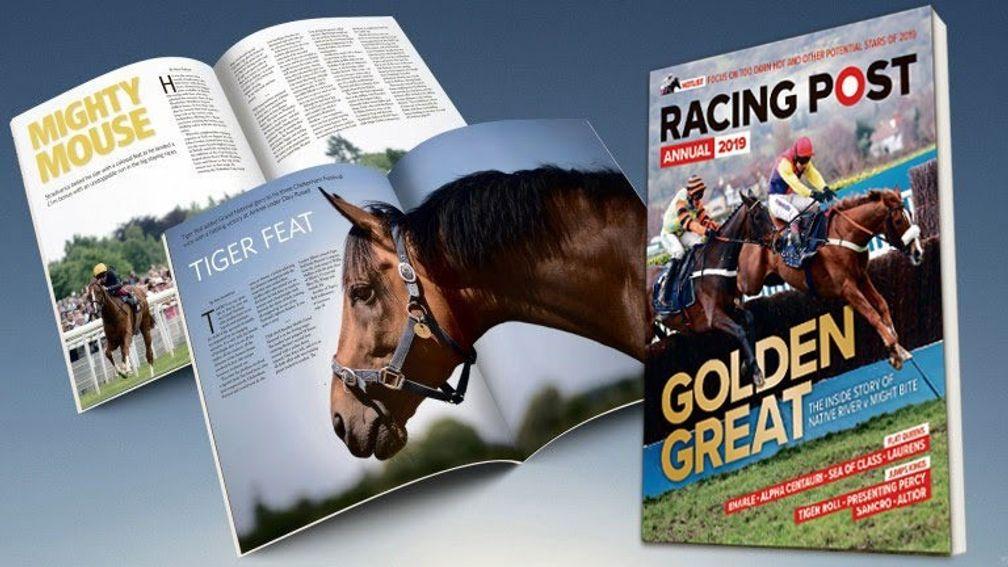
Look back on the best action of the year in the new edition of the Racing Post Annual. Order now at racingpost.com/shop or call 01933 304858
Published on 26 November 2018inFeatures
Last updated 18:24, 27 November 2018
- Government says it is working 'at pace' to have white paper measures in force by the summer
- 'The only thing you can do is lie fallow and regroup' - Meades to return with scaled-back operation following blank period
- The Gambling Commission has launched its new corporate strategy - but what are the key points?
- 'It was tragic it happened to Paddy but it was a good thing for the jockeys who followed - good came out of bad'
- Acquisitions, exits and retail resilience - what we learned from Flutter and 888's results
- Government says it is working 'at pace' to have white paper measures in force by the summer
- 'The only thing you can do is lie fallow and regroup' - Meades to return with scaled-back operation following blank period
- The Gambling Commission has launched its new corporate strategy - but what are the key points?
- 'It was tragic it happened to Paddy but it was a good thing for the jockeys who followed - good came out of bad'
- Acquisitions, exits and retail resilience - what we learned from Flutter and 888's results